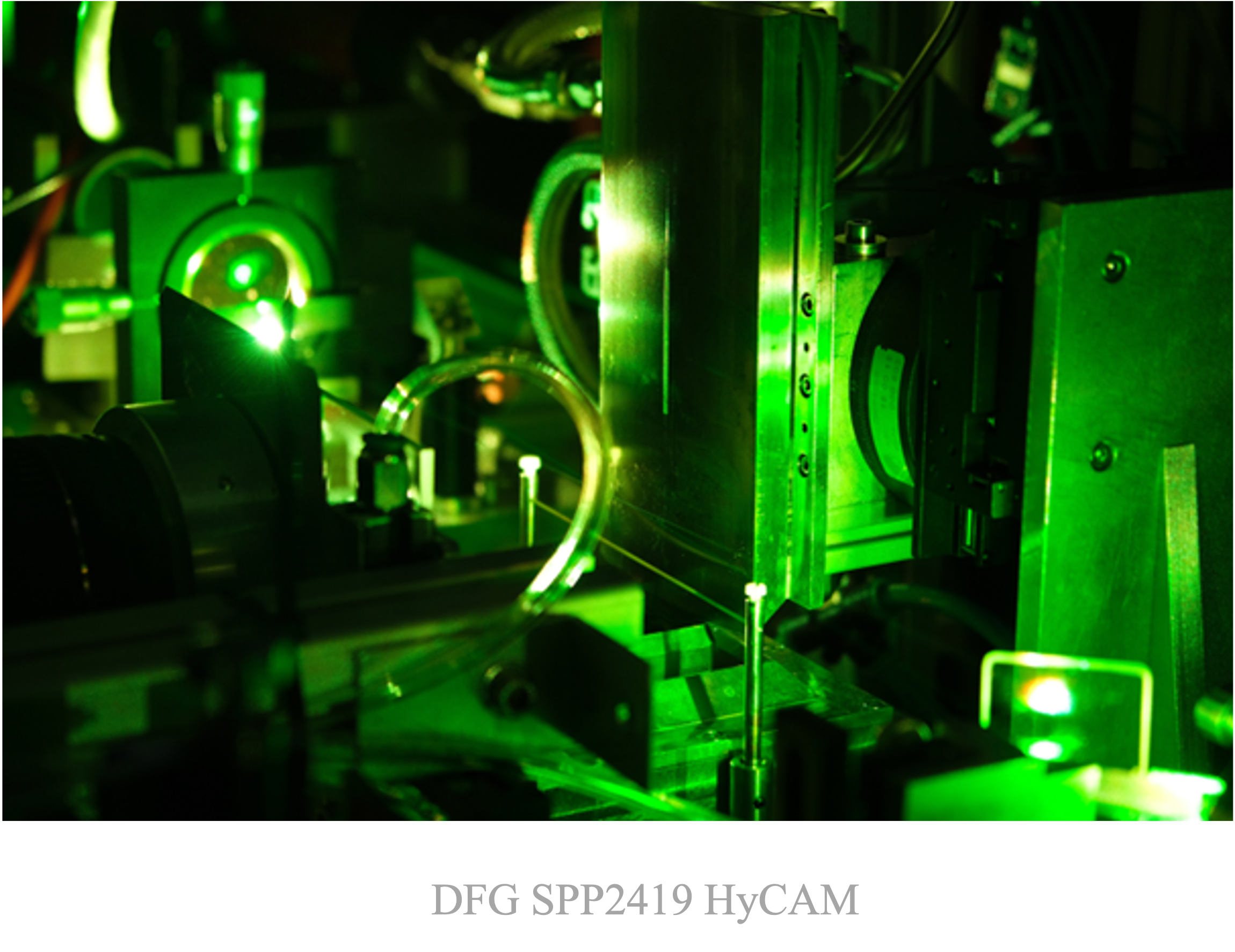07 - Interaction of hydrogen flames and smart effusion-cooled gas turbine combustor walls
Summary
The aim of this project is to research the scientific fundamentals of self-adapting effusion cooling for future hydrogen-powered gas turbines. The research concept encompasses and interlinks thermofluidic and materials science issues. In hydrogen combustion, there is a very intensive interaction of the flame with the combustion chamber wall due to significantly smaller flame quenching distances compared to conventional fuels. This results in higher wall heat fluxes and the need for adapted cooling for hydrogen operation. Effusion cooling is suitable because of its high efficiency and relatively low cooling mass flow requirement. In this project, functionalized smart wall structures with integrated sensors and actuators for effusion cooling will be produced using additive manufacturing (AM) processes and their interaction and stability with lean hydrogen flames will be investigated. Temperature sensors will be integrated into the wall to determine wall heat loads for different flame-wall interaction scenarios. AM fabricated porous wall structures will be used to generate a uniform cooling film. As a visionary concept, high-temperature shape memory alloys will be explored in combination with auxetic structures as actuators for self-adapting (smart) control of the cooling air mass flow as a function of the wall heat load (sensor) due to hydrogen combustion. These complex wall structures will be characterized in laboratory experiments with regard to cooling efficiency and interaction between hydrogen flame, cooling air flow and wall using modern laser measurement technology. One focus is on the investigation of the near-wall flame structure and whether it is significantly influenced by thermodiffusive and hydrodynamic instabilities as in flames far from walls. These experimental data will be used to validate innovative mathematical combustion models that take into account the specifics of near-wall lean hydrogen combustion. The prediction quality of the numerical simulation tools developed in the project will be evaluated for the different wall cooling concepts. Thus, the project contributes significantly to the predictive engineering approach, which is essential for the rapid deployment of hydrogen-fueled gas turbines.

Research Team

Prof. Dr.-Ing. Thomas Niendorf
Principal Investigator (PI)
University of Kassel
Institute of Materials Engineering
niendorf(at)uni-kassel.de

Prof. Dr.-Ing. Matthias Oechsner
Principal Investigator (PI)
TU Darmstadt
Center for Structural Materials
matthias.oechsner(at)tu-darmstadt.de

Prof. Dr.-Ing. Christian Hasse
Principal Investigator (PI)
TU Darmstadt
Simulation of reactive Thermo-Fluid Systems
hasse(at)stfs.tu-darmstadt.de

Prof. Dr. habil. Andreas Dreizler
Principal Investigator (PI)
TU Darmstadt
Reactive Flows and Diagnostics
dreizler(at)rsm.tu-darmstadt.de

Pia-Sophie Becks
Doctoral Researcher
TU Darmstadt
Center for Structural Materials
pia-sophie.becks(at)tu-darmstadt.de

Max Schneider
Doctoral Researcher
TU Darmstadt
Simulation of reactive Thermo-Fluid Systems
schneider(at)stfs.tu-darmstadt.de

Marcel Marburger
Doctoral Researcher
TU Darmstadt
Reactive Flows and Diagnostics
marburger(at)rsm.tu-darmstadt.de

Mikkel Nobach
Doctoral Researcher
University of Kassel
Institute of Materials Engineering
nobach(at)uni-kassel.de



